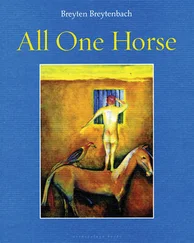Three whims especially Giovanni XXXV had, and these were well camouflaged until he attained the exalted position of infallibility: he was an epicure, a gourmet with wide and unbiased and truly cultivated tastes who had partaken of every renowned dish on this earth excepting always the meat of the anteater, and then not just that of any old aardvark or ant-bear or armadillo, no, it absolutely had to be the marinated tail of the pangolin, prepared à l’azanienne — during his patient and excellent service he all along searched for this culinary curiosity to this day unobtainable so that the finding and experiencing of same came over the years to be a barely controllable obsession; in the second place he dreamed every night of heaven as a bulging black cloud above his head, as the baldachin of a fourposter, menacing, and because of this he gradually lost first all interest and then any keenness and in due time his faith in heaven and its attributes — and at last, alas, also in its resplendent inhabitants and janitors, for who looks forward to disappearing, sucked up in a dark vault? And only the habit of abnegation and the external forms still aided him in maintaining the requisite appearance of piety; but particularly, in the last place especially — he couldn’t abide Satan. This cock drove him up the wall. It was the custom since God knows how many popes already that a black cock be kept on a tiny balcony next to the living quarters of the highest authority, and that the name of this disturber of the peace should be Satan. Where and why this thorn-in-the-flesh practice originated the devil alone will know. The present panicled beast, a braggart, a bully, a big bugger, a temperamental tempter, a ruffled ruffian — he exasperated two of Giovanni XXXV’s predecessors, outlived them, probably even helped them into heaven — the present crier was a true windbag. His Holiness couldn’t stand it any more — the defiant shrill crowing before dawn, twice, up to three times, so that hearing and seeing are shaken awake with a shock as of ice, and the raw sense of shame and disaster is laid bare, as also that ancient longing; that this anachronism had to subsist in the twenty-first century, and that he , Infallible Authority, had to move in a bare cock-stride away from the virago’s scaffolding!
Within the space of a few short weeks the old man’s condition started worsening irrevocably. Of what use is it to be the pope if no one, but exactly nobody — delegate, ambassador, plenipotentiary, chargé d’affaires, missionary, seminarist, chaplain, inquisitor, abbot, monk, nun, Franciscan or even Jesuit — could get hold of that one fierily desired dish? Why come and lick the amethyst of his ring to then tell him with downcast eyes that the scaly anteater has long since become extinct? What does it matter to him? Of everything he had eaten, from the similarly extinct elephant’s phlegm-tender trunk to the undone blue heart of the Korean sepia to the unearthly concoctions of the most distant satellite, but now he was sure: for ever since he can remember he had been yearning for that lost republic in Africa’s carapaced anteater’s pulpy-soft tail floating white up in a Roman sauce. . And what does it count to be pope, disenchanted, forfeited from fear and all further ferreting forsaken, when you still have to hallucinate at night, see the bulging black canopy descending to enfold you, trying by force to swallow you up in dark oblivion? But then! At the last moment on the ultimate lip of the wine-dark night, to be woken like old weak meat by the prehistoric roar of the bone-beak!
He lifts his hand laboriously — they have become thin and translucent and timid in the wide folds of the white sleeves of his robes of office — his mind has started swimming, red and warm, but he reasons just unerringly enough to have noticed the scavengers commencing to circle around him — and beckons to his secretary to come closer. Monsignor Pierolo Woulololo the latter is called — “a name like a turd”, the old pope reflects cynically, but also (he realizes with a sense of heaviness) one of those wanting to direct and manipulate me now that my hours are running out. “Any news from our spier?” (thus he expresses himself, in an archaic fashion) he asks with soft tongue. A slow shaking of the head and a mournful eye (the Pharisee!) are the only answers.
Ah, was he dreaming then? A rumour had been reported to him about how, somewhere in Trastevere in the very shadow of the Santa Maria church, so close by really, an exile from that distant lost land is supposed to be living and that this rumoured man, conserving an interest for antique species is said to have a tame pangolin “for purposes of research into suspected eating habits”. But even the most subtle investigation of a special Swiss Guard brought nothing to light concerning animal or man. People live so unobtrusively, so invisibly in our day. He sighs, drools something in Latin. Another language which nobody understands any more, not even the ecclesiastics. There is a flare-up of fire in him. It grows darker outside. A little muzzy from the atavistic hunger he looks through the window but the nightly fireworks display of space vehicles departing for and returning from far-off colonies can no longer amuse or distract him. (And man’s history is speeding by, fugitive colours shooting into the void. The Chinese devise the first rocket and use it in raising the Mongolian siege of Kai-Fung-Fu in the year AD 1232. The Babylonians decide that Mars must be a planet. In the year 160 of Our Lord, Lucianus of Samosata already visits the moon in a story. Ditto old Nicholas Copernicus in his Of the Revolution of Celestial Bodies in 1543. Ditto Johann Kepler’s Concerning the Movements of Mars in 1609, although based on the earlier observations of Tycho Brahe. And Galileo Galilei — poor Galileo, we made you a heretic — comes in 1610 with his Messenger from the Stars . And William Congreave with his crazy experiments, trying to turn rockets into weapons. Jules Verne’s Voyage to the Moon already in 1865. Then Hermann Ganswindt with his projectile-impelled vehicles. Yes, the Germans, the Boches, the Tedeschi, their Gesellschaft — Association of Space Travellers, and later von Braun and the others of Peenemünde with the VI and the VII, and how soon afterwards they helped projecting the Amis, the Americans, into the tolling depths of space aboard their Mercury, Gemini,Apollo, and suddenly all manner of laboratoria, artificial planets, fleets to other galaxies. And meanwhile the other thinkers and dreamers and world conquerors, the Rumanian Hermann Oberth, the Russian Constantin Tsiolkovski who as early 1903 postulates the colonization of other planets, Yuri Gagarin the first hand mirror spinning around the globe, mirror in which mankind suddenly discovered a new resemblance, the dogs, the monkeys, the rats, Titov with the light hair, Soyuz, Neil Armstrong like a diver on the moon. . How far we’ve come since then. Every square centimetre of this space ark of ours under surveillance. Wipe-out a million kilometres away. Distances cancelled. Wars. Rays of destruction. Plasm and ectoplasm. Fires of discovery. Always more profoundly into the never-ending. Nothing is now invisible or our own. . How man’s furthest reaching dreams have been given shape and existence! Surely it must be possible to find the anteater. .!)
He sleeps. With a smack-a-muttermunch of lips. All his confused being purified now and one-pointed to the single last desire. He dreams. Is he really dreaming? In the volcanic mind he leafs back still through archives’ yellowed annals of vanished civilizations, the volumes researched over the years, and all at once remembers — since how long already obscured and put out of thought? — lines of a sonnet from that annoying country: something. . something. . about “life which is only a line of ants”, of “soldiers yet serving the blind queen”. . and “how sweet it must be on the anteater’s tongue”. Cloud? Antheap? Tongue? No. . no. . NO!
Читать дальше












